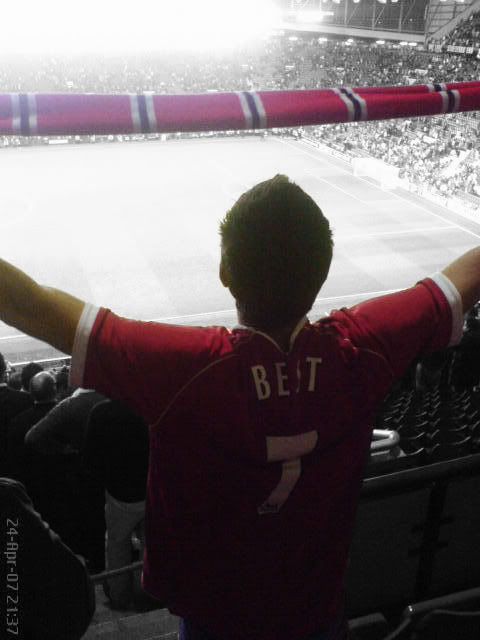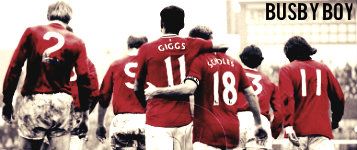Post by Scott on May 30, 2006 13:36:47 GMT
From The Guardian:
No one ever said that planning was an exact science. Tonight's match with Hungary is part of the preparations, but it is impossible to define the precise benefit to Sven-Goran Eriksson. The manager envisaged it originally as groundwork for the culmination of Group B at the World Cup.
Now Eriksson recognises how comedy has crept into his scheme: "I phoned up Lothar Matthäus and asked if he wanted a game, maybe at Wembley. That's gone. He said, 'Yeah, we will come and play.' I said, 'Then you will have to play as Sweden play.' He said, 'OK.' But now the manager's gone, so I don't know any more."
The whole concept that Hungary could ever have been the spitting image of Sweden is suspect. Even if he were so inclined, the new coach Peter Bozsik could not pull off that impersonation without, for example, coming up with Hungarian equivalents of Zlatan Ibrahimovic and Henrik Larsson.
These dress-rehearsals are the sketchiest equivalents of the real thing. England could only have been exhilarated by the stoppage-time winner in their previous friendly if they were sure that Uruguay had a lot more in common with Paraguay, the opposition on June 10, than a place on the same page of the atlas.
The policy depends on a shrug and a suggestion that there cannot be any harm in seeking out lookalikes of your rivals. In practice, though, the identity of the side who happen to be sharing the pitch is generally of minor significance. Old Trafford will not contain 75,000 tonight because of the limited allure of Hungary, ranked 76th in the world.
The coach of the Hungarians, appointed last month in succession to Matthäus, is the son of the late Jozsef Bozsik. He was the great midfield orchestrator who won 101 caps in the Aranycsapat, the golden team who proved they had reinvented football with the 6-3 victory over England at Wembley in 1953.
Bloodline links Peter Bozsik with that achievement, but his team has no other connection to an elevated era. Hungary came fourth in their World Cup group - behind Croatia, Sweden and Bulgaria. While several members of the squad, including Gabor Kiraly of Crystal Palace and West Bromwich's Zoltan Gera, play abroad, none are renowned.
In his first game in charge, Bozsik recorded a 2-0 victory over a jet-lagged New Zealand last week that was viewed as a tolerable start. Hungary could be stirred, too, by the Old Trafford atmosphere and Gera might give Eriksson some idea of the effectiveness of England's defensive arrangements in midfield.
None the less, this fixture will not be in keeping with the usual round of friendlies if it develops a strong character. This is primarily an evening for the public to express a fervour for England that actually swells with each trophy-less decade.
It is a shame that games outside the major competitions have been reduced to this. That triumph for Hungary 53 years ago is, after all, so great a landmark that it would be bizarre to think of it as a friendly. Eriksson is very far from being the only culprit in the devaluation of these matches, but England's have been among the more wearisome.
Italy, by comparison, have been riveting in recent wins over Holland and Germany. Those were among the precious exceptions and even when renowned teams meet in contemporary friendlies, the coaches tend to protect their reputations by tampering with line-ups or making so many substitutions that the game is subverted.
It is not just the spectators who lose out. The countries, too, are squandering their opportunities, even though there are reminders of the largely unexplored potential. England's best and most instructive match since Euro 2004 was a friendly, when Argentina were beaten 3-2 in Geneva six months ago.
At full-time the glow of Michael Owen's late goals illuminated the team, but the players also had a good deal to reflect upon. No qualifier in the European zone had shown them how potent a player like Juan Roman Riquelme could be this summer.
There probably is not a Hungarian who can produce a display like that, yet it would be better for everyone if managers set their hearts on really taxing friendlies.
No one ever said that planning was an exact science. Tonight's match with Hungary is part of the preparations, but it is impossible to define the precise benefit to Sven-Goran Eriksson. The manager envisaged it originally as groundwork for the culmination of Group B at the World Cup.
Now Eriksson recognises how comedy has crept into his scheme: "I phoned up Lothar Matthäus and asked if he wanted a game, maybe at Wembley. That's gone. He said, 'Yeah, we will come and play.' I said, 'Then you will have to play as Sweden play.' He said, 'OK.' But now the manager's gone, so I don't know any more."
The whole concept that Hungary could ever have been the spitting image of Sweden is suspect. Even if he were so inclined, the new coach Peter Bozsik could not pull off that impersonation without, for example, coming up with Hungarian equivalents of Zlatan Ibrahimovic and Henrik Larsson.
These dress-rehearsals are the sketchiest equivalents of the real thing. England could only have been exhilarated by the stoppage-time winner in their previous friendly if they were sure that Uruguay had a lot more in common with Paraguay, the opposition on June 10, than a place on the same page of the atlas.
The policy depends on a shrug and a suggestion that there cannot be any harm in seeking out lookalikes of your rivals. In practice, though, the identity of the side who happen to be sharing the pitch is generally of minor significance. Old Trafford will not contain 75,000 tonight because of the limited allure of Hungary, ranked 76th in the world.
The coach of the Hungarians, appointed last month in succession to Matthäus, is the son of the late Jozsef Bozsik. He was the great midfield orchestrator who won 101 caps in the Aranycsapat, the golden team who proved they had reinvented football with the 6-3 victory over England at Wembley in 1953.
Bloodline links Peter Bozsik with that achievement, but his team has no other connection to an elevated era. Hungary came fourth in their World Cup group - behind Croatia, Sweden and Bulgaria. While several members of the squad, including Gabor Kiraly of Crystal Palace and West Bromwich's Zoltan Gera, play abroad, none are renowned.
In his first game in charge, Bozsik recorded a 2-0 victory over a jet-lagged New Zealand last week that was viewed as a tolerable start. Hungary could be stirred, too, by the Old Trafford atmosphere and Gera might give Eriksson some idea of the effectiveness of England's defensive arrangements in midfield.
None the less, this fixture will not be in keeping with the usual round of friendlies if it develops a strong character. This is primarily an evening for the public to express a fervour for England that actually swells with each trophy-less decade.
It is a shame that games outside the major competitions have been reduced to this. That triumph for Hungary 53 years ago is, after all, so great a landmark that it would be bizarre to think of it as a friendly. Eriksson is very far from being the only culprit in the devaluation of these matches, but England's have been among the more wearisome.
Italy, by comparison, have been riveting in recent wins over Holland and Germany. Those were among the precious exceptions and even when renowned teams meet in contemporary friendlies, the coaches tend to protect their reputations by tampering with line-ups or making so many substitutions that the game is subverted.
It is not just the spectators who lose out. The countries, too, are squandering their opportunities, even though there are reminders of the largely unexplored potential. England's best and most instructive match since Euro 2004 was a friendly, when Argentina were beaten 3-2 in Geneva six months ago.
At full-time the glow of Michael Owen's late goals illuminated the team, but the players also had a good deal to reflect upon. No qualifier in the European zone had shown them how potent a player like Juan Roman Riquelme could be this summer.
There probably is not a Hungarian who can produce a display like that, yet it would be better for everyone if managers set their hearts on really taxing friendlies.





